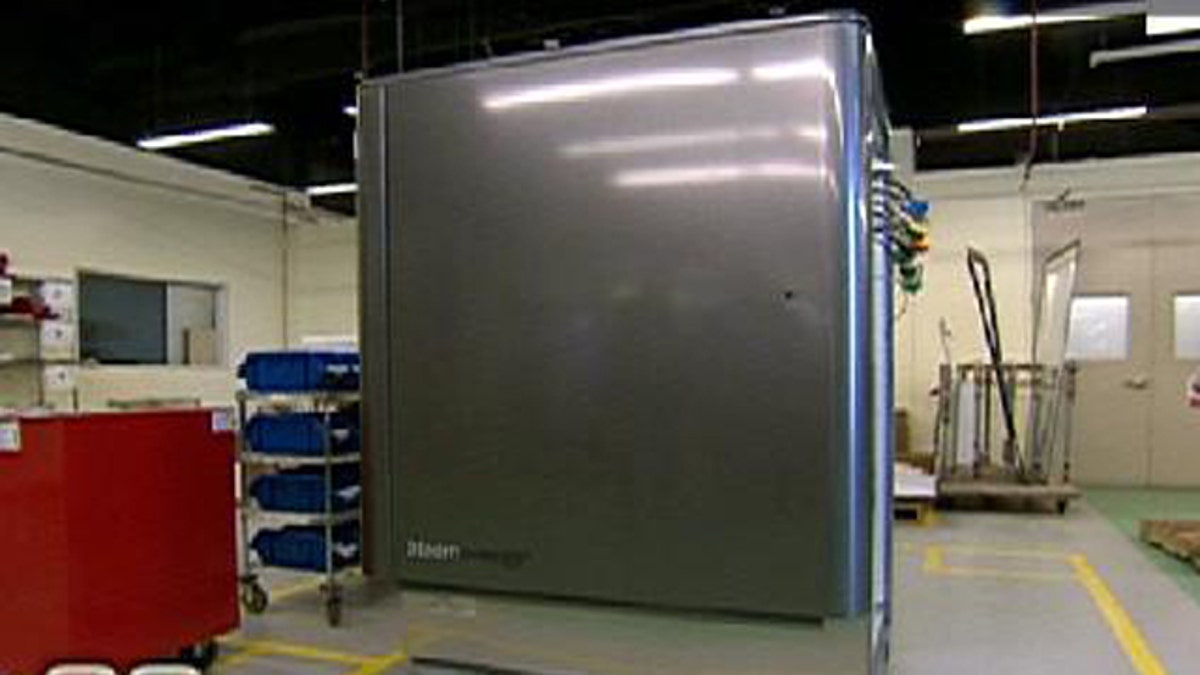
A screenshot from 60 Minutes showing the Bloom Box, a fridge-sized fuel cell designed to make electricity through chemistry. (60 Minutes)
The blogosphere is abuzz over the disclosure by startup Bloom Energy that it has come up with a fuel cell technology that can replace conventional energy sources.
But can it really? The devil, as they say, is in the details -- and few of those were made public in an interview on CBS's "60 Minutes" program Sunday.
The Silicon Valley company's CEO, K.R. Sridhar, showed off a refrigerator-sized Bloom Box filled with fuel cells and designed to make electricity through a chemical process. The boxes can make energy anywhere, he said, and do so without giving off any emissions.
Already, a number of high-profile American corporations have begun testing the technology. A "60 Minutes" reporter visited facilities of eBay, which has installed a number of Bloom Boxes; the e-commerce company put savings from the technology so far at $100,000. Others reported to have installed units include Google and Federal Express.
Since other business journalists weren't let in on the scoop, it wasn't possible to ask the company some hard questions. Like any rigorous analysis of the cost of the power, which has been a major impediment to the deployment of fuel cells.
A spokeswoman for the Sunnyvale, Calif., firm said no interviews would be conducted until Wednesday, when the company plans an event in Silicon Valley featuring presentations by luminaries including John Doerr, partner in the venture firm Kleiner Perkins Caufield & Byers, the key financial backer of Bloom Energy.
(Sridar told "60 Minutes" that an estimate that the startup has raised $400 million was "in the ball park.") Former Secretary of State Colin Powell is also scheduled to attend; he said on "60 Minutes" that he had joined the company's board. The company's Web site is also cryptic, containing a countdown clock to the event, to be conducted in eBay's town hall.
Fuel cells have been under development for many decades but face challenges common to new technologies aimed at the power sector. It isn't enough to be able to make electricity, a generation source must demonstrate tremendous reliability and it must compete on price with conventional sources of power generation.
Bloom Energy told "60 Minutes" that its fuel cells could be purchased for individual homes or located in utility substations or adjacent to companies that want to produce their own power. A single unit will power about 100 homes and cost $700,000 to $800,000, but the company did not disclose how much natural gas would be needed.
For more information, see The Wall Street Journal.
